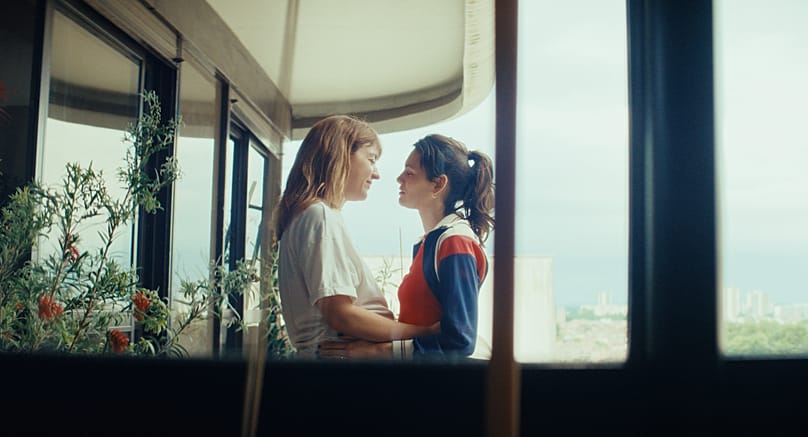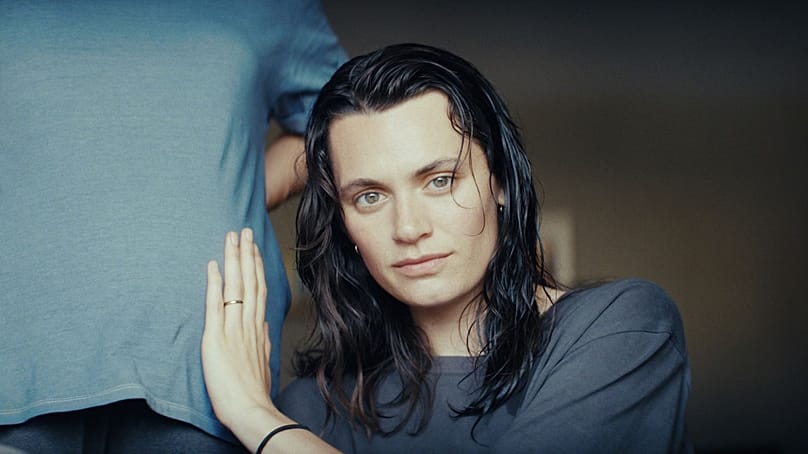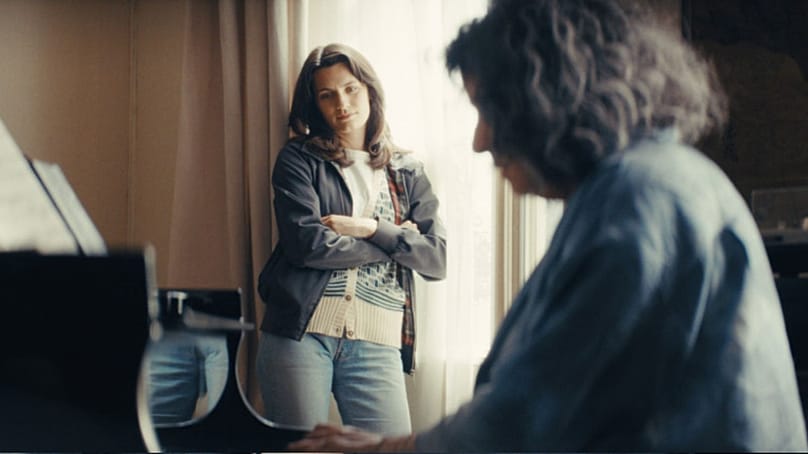Alice Douard's first feature film is a funny, necessary and heartwarming story of both romantic and maternal love.
The year is coming to an end with a somewhat disappointing record for French cinema, bereft of major national successes like last year’s The Count of Monte-Cristo, A Little Something Extra and Beating Hearts.
 ADVERTISEMENT
ADVERTISEMENT
 ADVERTISEMENT
ADVERTISEMENT
As of October, ticket sales are down 14.9% in 2025 compared to 2024. French films represent 38% of movies screened in the country as opposed to more than 46% last year, according to the National Centre for Cinema and the Moving Image.
It was, however, an interesting year for French lesbian cinema, with several acclaimed movies, in both documentary and fiction. One of them was_The Little Sister_ (La Petite Dernière), the third feature film by renowned actress Hafsia Herzi. This adaption of Fatima Daas’ 2020 novel, about a young woman learning to reconcile her Muslim faith and her sexuality, was awarded the Queer Palm at the 2025 Cannes Film Festival and even bagged Nadia Melliti the Best Actress Award.
It wasn't the only stellar queer story that premiered in Cannes this year. Alice Douard’s Love Letters (Des preuves d’amour) was selected for the festival’s Critics Week and has now come to French theatres.
The year is 2014 and the place is Paris in springtime. The French law authorising sex-same couples to get married and adopt children is less than a year old.
Céline (Ella Rumpf) is expecting her first child but she is not pregnant. Her wife Nadia (Monia Chokri) is carrying their daughter thanks to assisted reproductive technology performed in Denmark.
Céline will have to adopt her future child to legally become a mother. She listens carefully as a blunt lawyer asks her to provide letters from her loved ones, including her estranged mother, to attest of her relationship with her baby.
We follow the couple in the last three months of the pregnancy, as Céline struggles to find her place as a future parent and goes on a quest to collect her love letters.
For her first feature film, Alice Douard reconnects with familiar themes and settings. Love Letters expandsfrom her 2022 short film L’Attente, set in a maternity ward, about a woman waiting for her wife to deliver their first child. It won the César Award for Best Fiction Short Film.
Three years later, Douard offers a much-needed depiction of pregnancy and motherhood. The film does not shy away from complex emotions. Nadia’s. Céline’s. Ours.
The camera follows the characters up close, capturing the extraordinary nuances that Chokri and Rumpf bring to these two women. Nadia’s frustration over her changing body and abilities as a parent take as much space as Céline’s confusion and anger at having to prove her motherhood.
Céline is afraid Nadia might die before the adoption is completed, leaving her with no rights over their daughter. And what if she just breaks up with her? “Everyone says you can’t stomach one another the first year," she says during an argument.
But Love Letters is far from being a maudlin tear-jerker, as the film delivers some truly funny scenes. For instance, Céline and Nadia visit a couple of friends, hoping to secure a reference for their adoption case. Their acquaintance leads to harrowing details of labour, soundtracked to restless children on a mission to make as much noise as possible.
“I can't have an abortion now anyway, it's too late,” a stunned Nadia says after they leave, suddenly realising how much their life is about to change.
The film’s brilliance lies in Douard’s mastery of its tone. Moments of doubts and anxiety always unfold with a certain softness.
The magical ingredient is love. The love Douard feels for her characters and the love we sense between Céline and Nadia when they lip-sync the words to Flume’s ‘You & Me’ from two opposites sides of a nightclub. In doing so, they look at each other but also at the camera.
Later in the film, a heavily pregnant Nadia punches a homophobe to defend Céline, which might just be the ultimate proof of love.
Love is also what unites Céline and her mother Marguerite (Noémie Lvovsky), a famous pianist who spent most of her daughter’s childhood on the road. Marguerite does not understand why Céline isn’t carrying her child and wonders if this is punishment for her absence. Céline resents her mother for choosing music over her despite also working in concert halls as a sound engineer. But their unique bond remains.
Ultimately, the initial administrative quest is just the starting point that allows Douard to unfold her tender and in many ways revolutionary portrait of parenthood. Céline and Nadia, like Marguerite, will be imperfect mothers. But mothers they will be.
Love Letters is out in French, Belgian and Swiss cinemas now, with a scheduled release across Austria, Germany and Quebec in the coming months.













